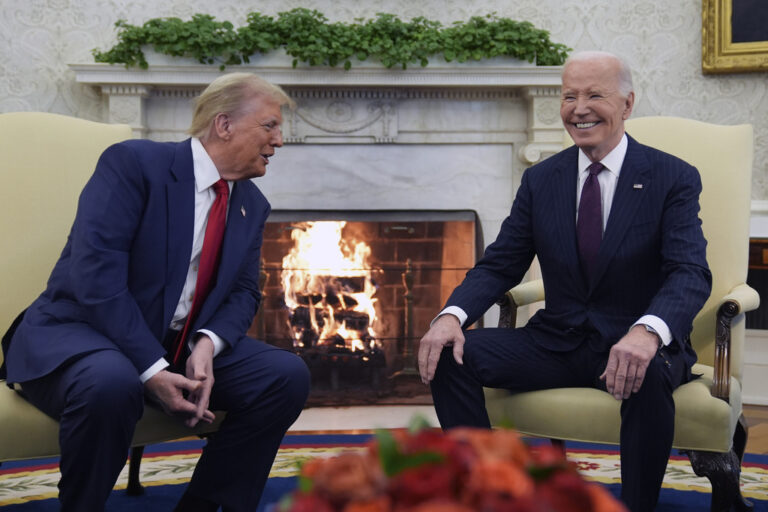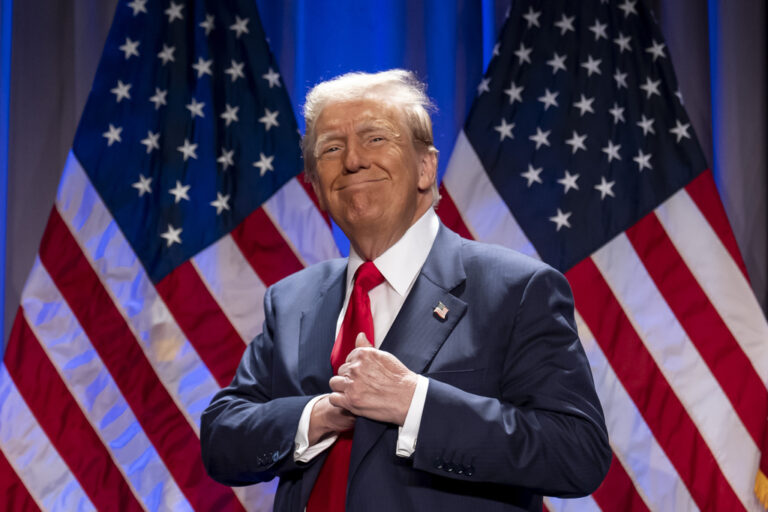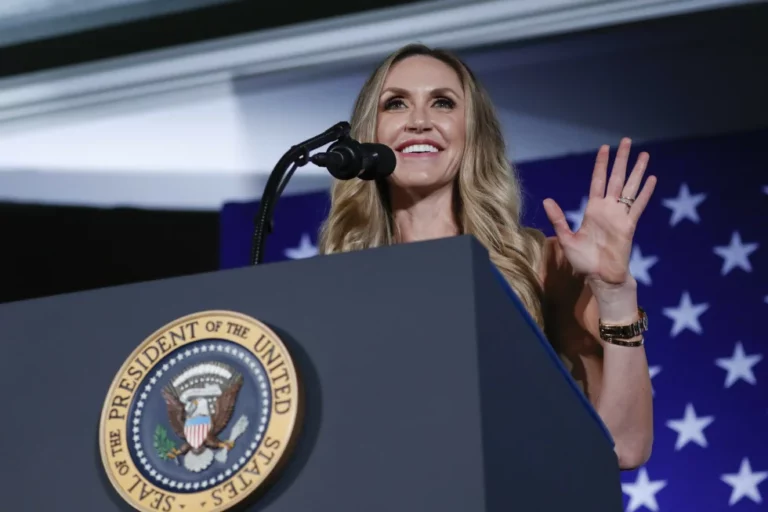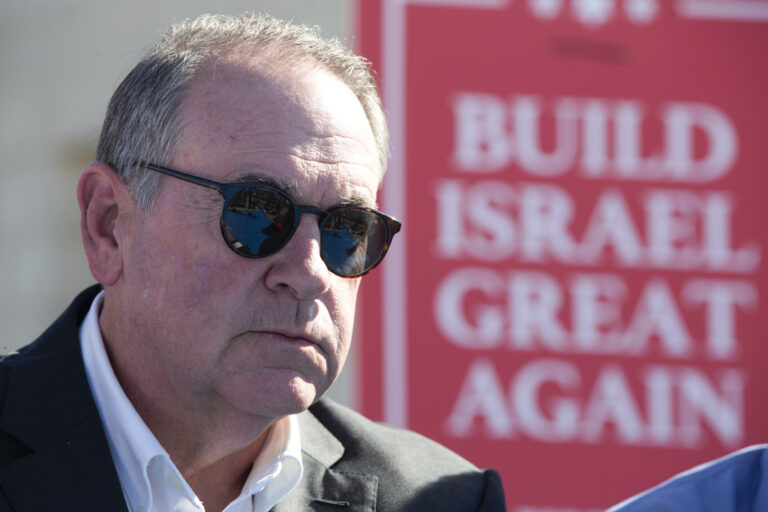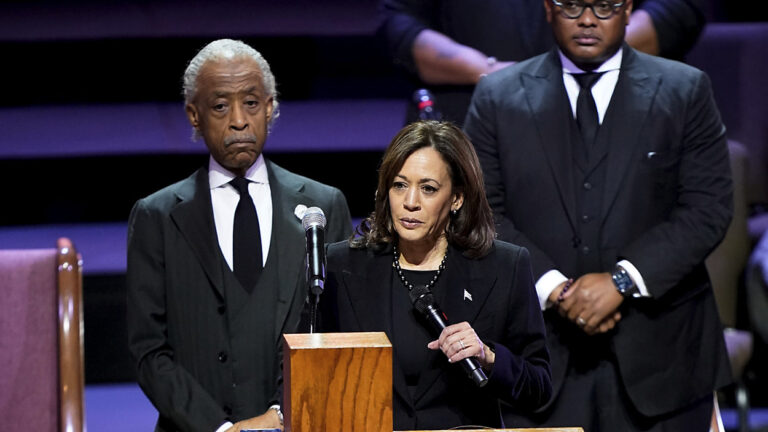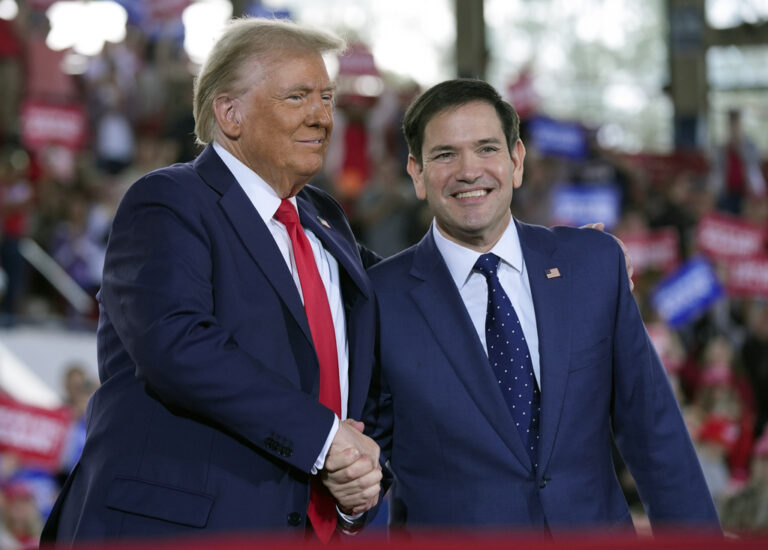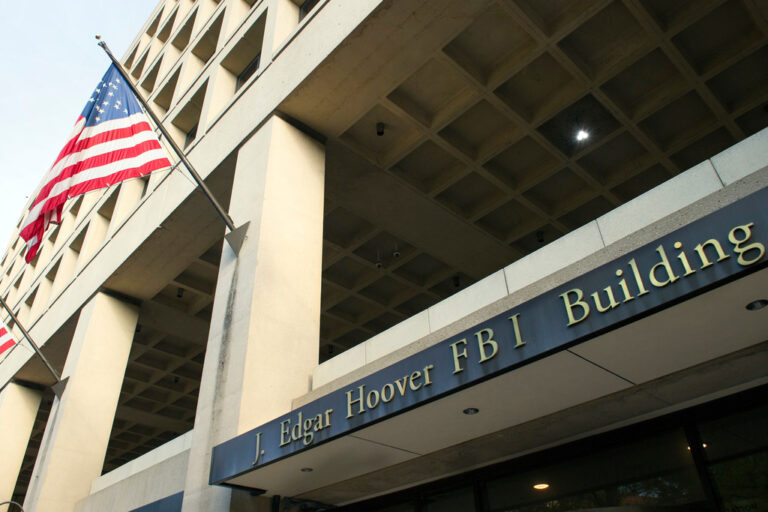Mitt Romney is shaking hands, posing for pictures and cracking jokes as he barnstorms Utah seeking votes for his Senate bid. What he isn’t doing is talking about his well-documented feuds with President Trump.
Wearing blue jeans and flashing his famous smile, Romney strode into a gymnasium lined with elk antlers and rifles to greet a group of sportsmen not far from the Bears Ears National Monument, downsized recently by the Trump administration.
Before he spoke, the lights went down and up came a video portraying President Obama as the villain for setting the land aside as a monument. Interior Secretary Ryan Zinke and President Donald Trump were cast as champions and heroes for shrinking it by 85 percent.
“Finally the land has a voice, a champion (picture of Zinke) and a hero (picture of Trump),” the narrator said as the crowd of 400 ranchers and hunters boomed their approval.
The voters in these tiny towns, flanked by magnificent red rock landscapes and full of red-blooded conservatives, are the ones Romney needs to support him as he campaigns to restart his political career and succeed retiring Sen. Orrin Hatch.
He drew big applause when he told the convention he wants to see reform of the Antiquities Act so presidents can’t lock up such large expanses of land with one stroke of the pen. The crowd of hunters also bellowed when he said the Endangered Species Act has been overused.
At 70, he is arguably one of the nation’s most famous Mormons and is treated like royalty at every stop.
Though some hope Romney will become the GOP’s counterbalance to Trump, whom he called a “phony” and “con man” during the 2016 presidential race, as a candidate, Romney is avoiding lobbing any new attacks on the president and is instead trying to keep the focus on Utah issues.
Romney makes a point in short speeches to applaud President Trump’s moves to lower taxes, shrink bureaucracy and shift more control of public lands to the states — examples he hopes show he and Trump see eye-to-eye on some issues.
When asked directly about Trump, Romney strikes a middle ground and stops short of pledging blind loyalty to the billionaire businessman who in 2016 called Romney a “choke artist.”
“President Trump and I both respect people who speak their mind. I call them like I see them. He of course does the same thing,” Romney said. “If either one of us does something that the other finds to be out of line or not right for the country, why, I’m sure we’ll speak out.”
The tight rope Romney is trying to walk seems just fine with most Utah Republican voters, even the ones who are ardent Trump supporters.
Kent Green, a former rodeo bull rider who runs an off-road adventure company in the tourist town of Moab, was among a small crowd who listened to Romney give a short speech at the county Republican Lincoln Day dinner. Green, 61, said he didn’t like when Romney ripped Trump, but said he’ll back him for the Senate seat just as he did six years ago in the presidential race.
“They were able to settle their differences,” said Green, 61. “People disagree. It’s a good thing sometimes.”
Jeramy Day, the Grand County GOP chairman who hosted the dinner, said he leans hard right but supports Romney because somebody with political power is needed to fill the massive void being left by Hatch.
“Someone like Mitt with his experience, his connections, I think he carries a big stick,” said Day, a 39-year-old hotel manager. “If he doesn’t fulfill the duties to Utah, Utahans aren’t above booting him out like we did Bennett.”
Day was referring to the surprising ouster of the late Sen. Bob Bennett, who was defeated in 2010 in his bid for a fourth term during the rise in tea party-fueled anger among Republicans.
Romney isn’t running unopposed — Salt Lake County Council member Jenny Wilson is a Democratic challenger who consistently criticizes Romney — but he’s the heavy favorite to win in a the conservative state where Republican voters outnumber Democrats by a four-to-one margin.
During his first major campaign swing, Romney visited Arches National Park to admire the rock formations that draw tourists from the around world and meet with community leaders in several small towns in coal country in the central part of the state.
Romney likes to joke that he likely won’t serve 40 years like Hatch because that would make him 110, but he does not rule out a second or even third term if elected.
Romney was born in Michigan to the former governor of that state and set his first roots in Utah nearly a half century ago when he attended the Mormon-owned Brigham Young University in Provo. But it would be nearly three decades before he earned his adopted son status in Utah when in 1999 he took over the Salt Lake Olympics and helped it navigate through a bribery scandal to put on successful games three years later.
He’s faced some scrutiny from critics who point out he only made Utah his primary home after losing the 2012 presidential election. But Brink Griffin, a Mormon father of four who runs a plumbing store, said he feels confident in Romney because he shares the same religion and understands what Utah residents want and need. Griffin and three of his sons took a picture with Romney at a small general store in Huntington, home to a large coal-fired power plant, before Romney bought a Twinkie and signed campaign signs.
“It’s a huge blessing. I think he’ll do great,” said Griffin. “He shares a lot of our same values.”
(AP)


